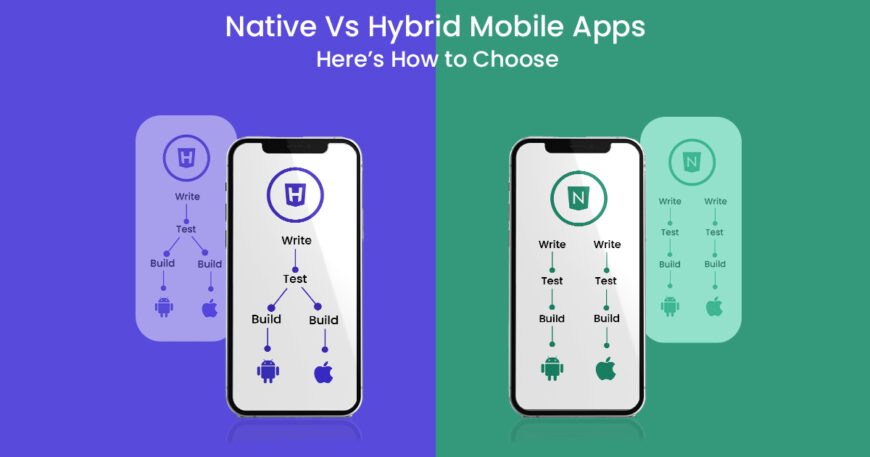In the dynamic world of mobile app development, choosing the right approach can significantly impact the success of your application. At Silvery Infotech, we specialize in both native and hybrid app development, helping you make an informed decision that best suits your business needs. Let’s delve into the key differences between native and hybrid apps.
1. Definition and Core Technology
Native Apps:
- Developed specifically for one platform (iOS or Android).
- Utilize platform-specific languages: Swift or Objective-C for iOS, Java or Kotlin for Android.
- Leverage the full potential of the device’s hardware and software capabilities.
Hybrid Apps:
- Designed to work across multiple platforms with a single codebase.
- Built using web technologies such as HTML, CSS, and JavaScript.
- Wrapped in a native container allowing them to run on any device.
2. Performance
Native Apps:
- Offer superior performance due to direct interaction with the device’s operating system.
- Highly efficient, with faster execution and smooth user experience.
Hybrid Apps:
- Generally slower compared to native apps because of the extra layer between the source code and the platform.
- Performance may vary depending on the complexity of the app and the capabilities of the hybrid framework used.
3. User Experience
Native Apps:
- Provide a highly responsive and intuitive user experience.
- Can take full advantage of native UI components, resulting in a look and feel that is consistent with other native apps on the platform.
Hybrid Apps:
- Can deliver a decent user experience but might not be as seamless as native apps.
- Often have limitations in accessing device-specific features and providing a consistent user experience across different platforms.
4. Development Time and Cost
Native Apps:
- Typically require more development time and higher costs since separate codebases must be maintained for each platform.
- Ideal for apps requiring high performance and extensive use of native features.
Hybrid Apps:
- Faster to develop and more cost-effective as they share a single codebase across platforms.
- Suitable for projects with tighter budgets and timelines.
5. Maintenance and Updates
Native Apps:
- Maintenance and updates can be more complex and time-consuming due to separate codebases.
- Each platform update requires a corresponding app update to maintain compatibility.
Hybrid Apps:
- Easier to maintain and update since changes are made to a single codebase.
- Faster deployment of updates across multiple platforms simultaneously.
6. Access to Device Features
Native Apps:
- Full access to all device features and APIs, enabling the development of feature-rich applications.
- Better integration with device hardware such as GPS, camera, and sensors.
Hybrid Apps:
- Limited access to device features, though modern frameworks like Ionic and React Native are bridging this gap.
- May require additional plugins to access certain native features, which can sometimes be less reliable.
7. Offline Capabilities
Native Apps:
- Generally better offline capabilities due to closer integration with the device’s hardware and storage.
Hybrid Apps:
- Can provide offline functionality, but it may not be as robust as native apps, depending on the framework and implementation.
Conclusion
Choosing between native and hybrid apps depends on various factors, including project requirements, budget, and desired user experience. At Silvery Infotech, we understand the nuances of both approaches and offer expert guidance to help you make the best decision for your business. Whether you need the high performance and seamless user experience of a native app or the cost-effectiveness and cross-platform compatibility of a hybrid app, we have the expertise to deliver exceptional results.
Contact us today to discuss your project and find the perfect app development solution tailored to your needs.




